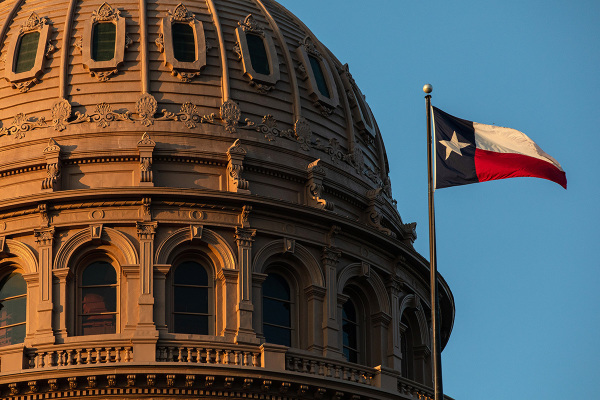Similarities Between Reagan Conservatives and Libertarians
With the unexpected rise of devout social conservative Rick Santorum and the previous surge of self-proclaimed libertarian Ron Paul, it is clear that the GOP base is not only looking for answers on how to steer the country but their own Republican Party as well.
Conservatives and libertarians have many differences in ideologies, especially when it comes to foreign policy. However, the two schools of thought are more intertwined and more similar than one may think.
On Tuesday, Santorum’s own nephew, 19-year-old John Garver, wrote an op-ed in the Daily Caller criticizing his uncle in support of Paul’s more libertarian views.
“If you want another big government politician who supports the status quo to run our country, you should vote for my uncle Rick Santorum,” wrote Garver.
In a light-hearted response to his nephew, Santorum told The Daily Caller that Garver is “just going through a phase.”
“He’s a Ron Paul supporter, God bless him,” he said. “I mean, it’s a phase. I understand it. And so we all go through those things. God bless Johnny, it’s wonderful.”
Later on in the discussion, The Daily Caller reports that Santorum said explicitly that he is not a libertarian.
“I’m a conservative,” he said. “I am a Reagan conservative. I am not a libertarian. And the people who are calling me a big government guy are libertarians.”
However, what Santorum may not have recalled, at least in the moment he made this declaration, is that Ronald Reagan, a hero to many conservatives, thought of himself as a libertarian.
“I believe the very heart and soul of conservatism is libertarianism,” Reagan said in 1975.
“The basis of conservatism is a desire for less government interference or less centralized authority or more individual freedom and this is a pretty general description also of what libertarianism is.”
He continued, “Now, I can’t say that I will agree with all the things that the present group who call themselves Libertarians in the sense of a party say, because I think that like in any political movement there are shades, and there are libertarians who are almost over at the point of wanting no government at all or anarchy. I believe there are legitimate government functions. There is a legitimate need in an orderly society for some government to maintain freedom or we will have tyranny by individuals. The strongest man on the block will run the neighborhood. We have government to insure that we don’t each one of us have to carry a club to defend ourselves. But again, I stand on my statement that I think that libertarianism and conservatism are travelling the same path.”
Reagan correctly pointed out that libertarianism, just like any other brand of thought, has many different splinters. The libertarian that Reagan was discussing is someone that recognizes the need for government only in situations that are absolutely necessary and is not an advocate of no government at all. There is a term for someone who wants no government at all, and it’s not called libertarianism. It’s called anarchism. At least that is what Reagan was trying to point out in his ’75 speech.
But if Reagan was such an advocate of small government, why did the size of government increase during his administration? Many people on the political left use this fact to paint Reagan as a hypocrite who campaigned on small government only to watch it grow under his watch.
Lee Edwards, distinguished fellow in conservative thought at the Heritage Foundation, told The Christian Post that Reagan did in fact slow the growth of government.
“There was a 4 percent increase in government spending under his predecessor, Carter. Reagan cut that in half. Government spending only increased by 2 percent under Reagan. It increased by 10 percent under Bush 41. So while critics are correct in saying that government grew under Reagan, he was able to slow the growth a lot.”
The desire for small government is what connects libertarians and conservatives and this is the foundational principle for both thoughts. The tell-tale sign of the conservative – desire for low taxes – stems from libertarian thought.
Christopher Cook writes in the Western Free Press: “If taxation is required, then it means putting a gun to one man’s head and taking from him what he worked for in order to make something happen for another man. If we allow the state to do that, it should be for a darned good reason. We should be sure that it is something the state MUST do, because we cannot do it ourselves. And we should be sure it is being done at the lowest division of government possible/reasonable. It should be done with as minimal intrusion possible to our natural rights.”
Most people who consider themselves traditional conservatives, including Santorum, would agree with this argument and advertise it as a Reagan conservative principle.
It is also fundamentally libertarian.






















